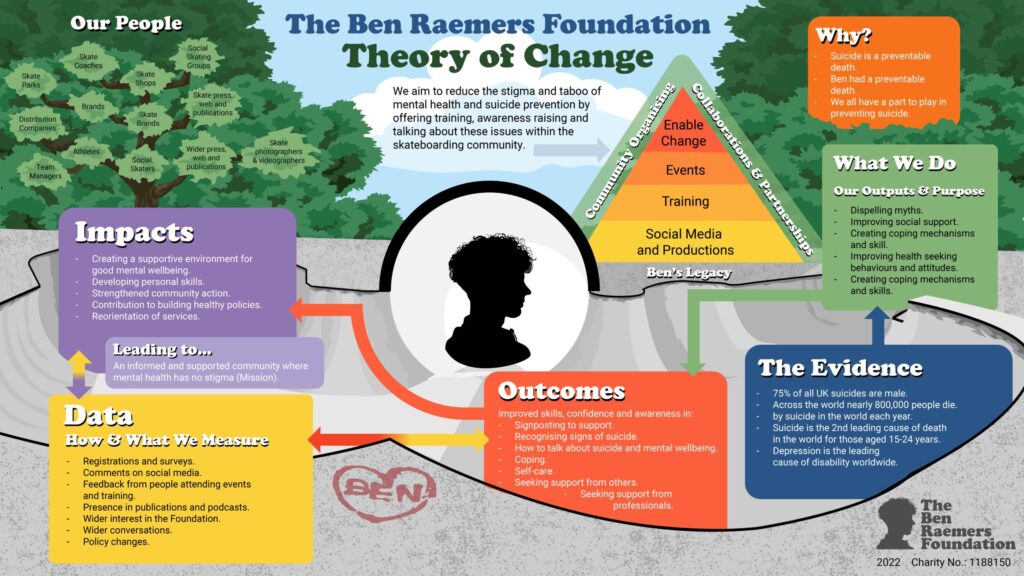On August 6, a few of us rode around Glasgow hitting a couple of parks and spots on our way to…
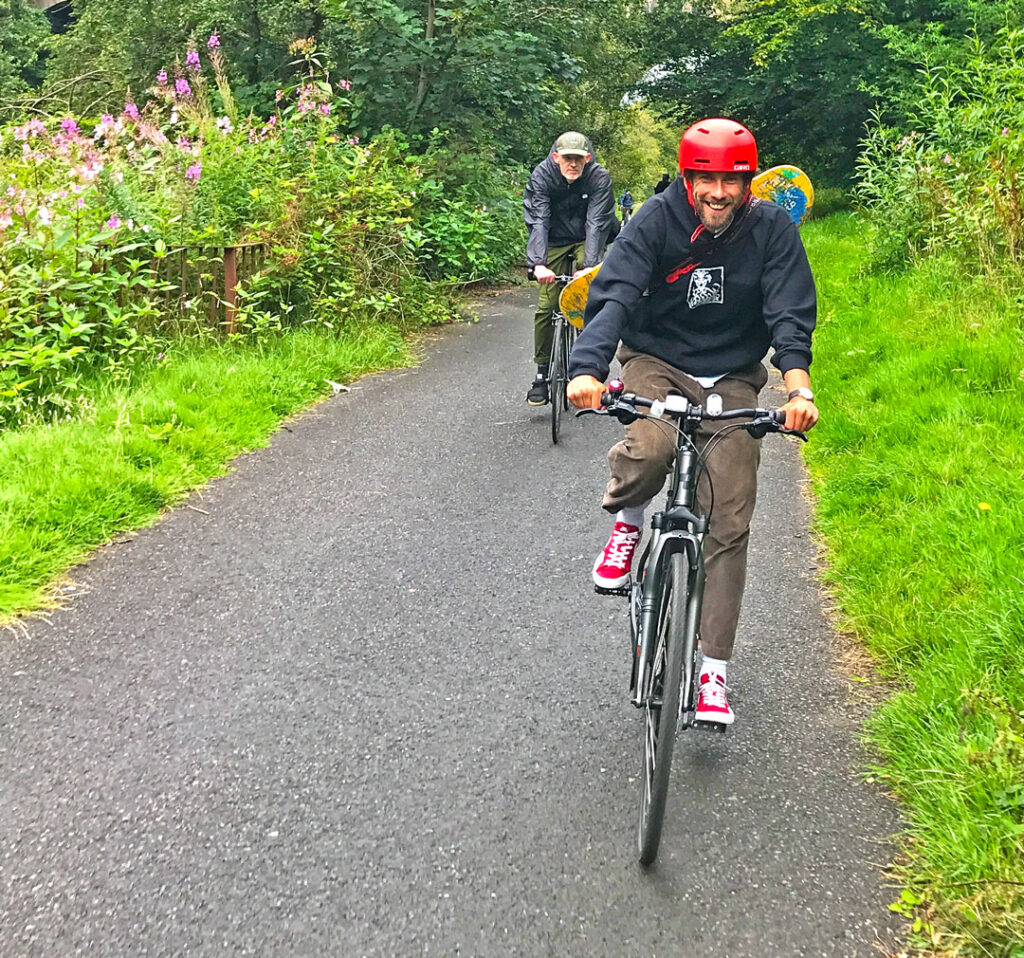
…The Loading Bay Skatepark where we had a fun little jam session…
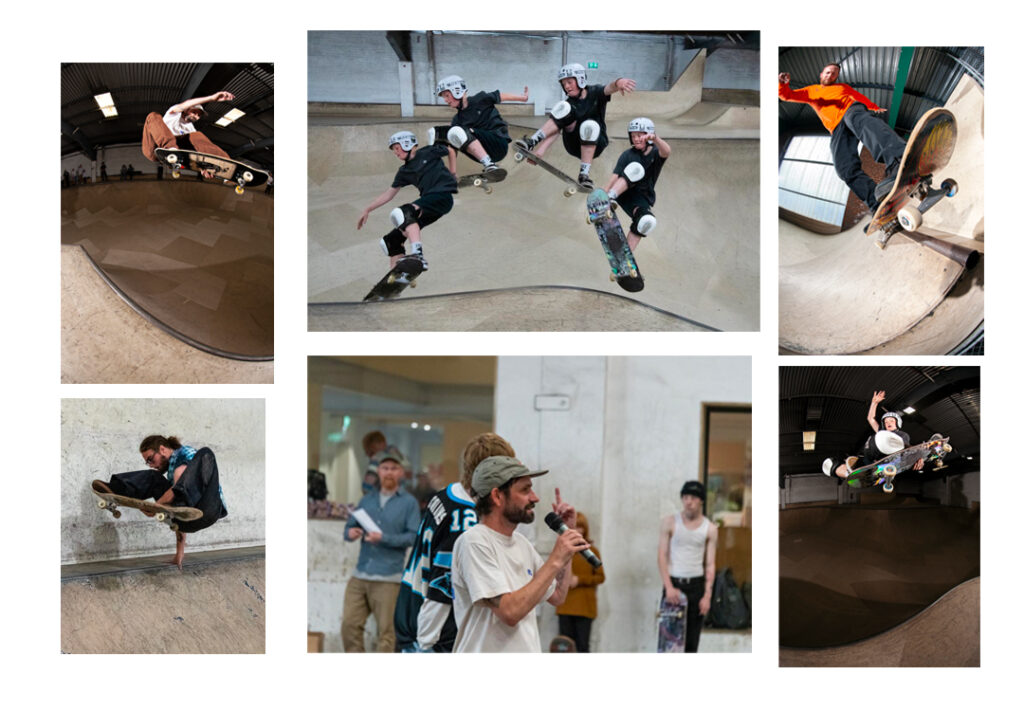
…followed by a panel discussion with The Ben Raemers Foundation and The Scottish Association for Mental Health.
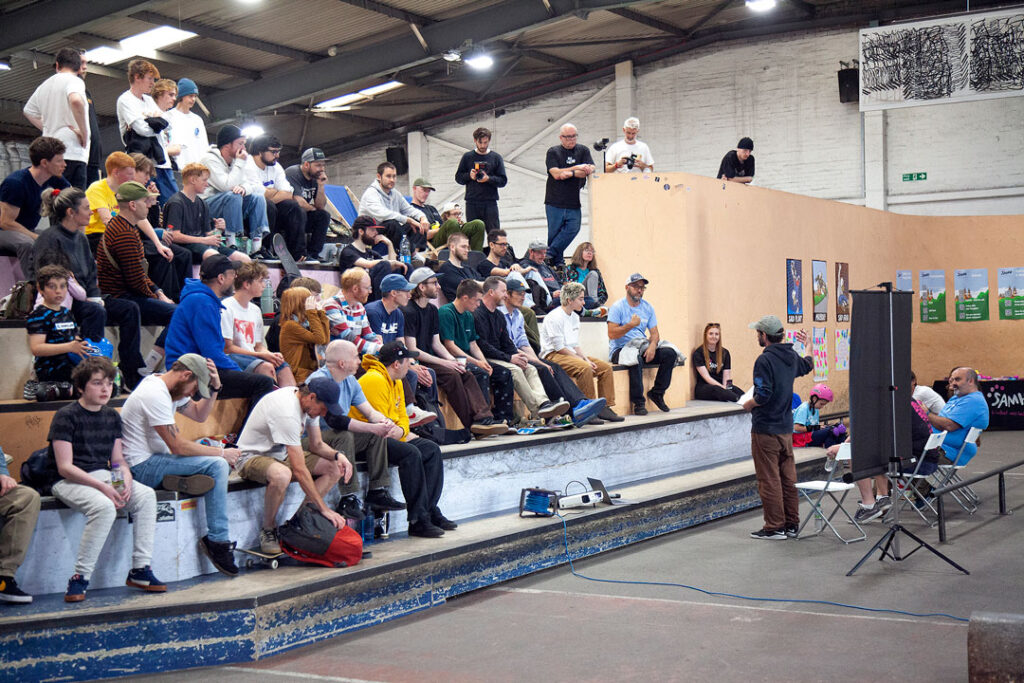
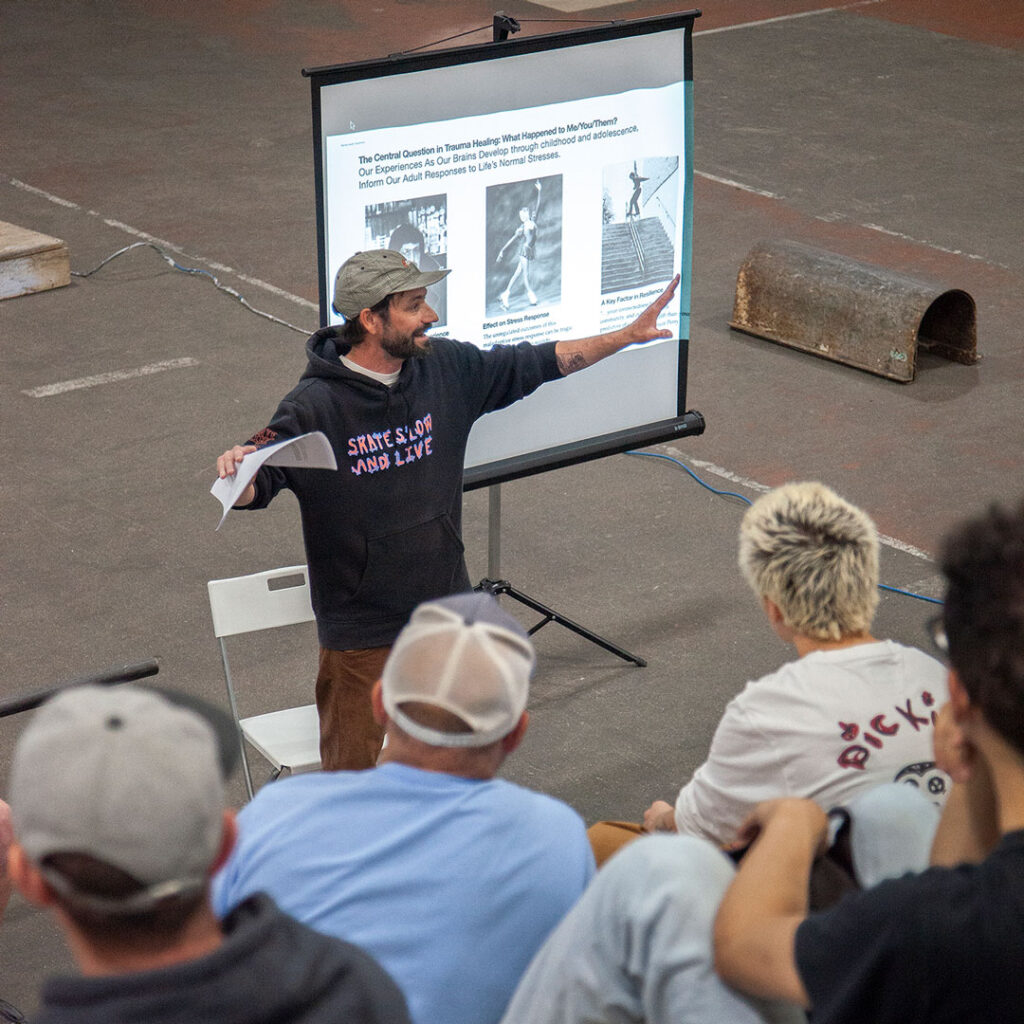
My main point is that this subject is not as scary as we once thought. There’s a lot we’ve learned over the last few years and some of it I have found really valuable in managing my own emotional wellbeing.
Here are a few links and resources from the Ben Raemers Foundation, the Scottish Association for Mental Health, as well as some items I’ve found helpful from over the years:
The Ben Raemers Foundation (BRF) site has some great resources:
Their animations are really well done
Their support resources page is very comprehensive
Catch up on their growing collection of Smile Films
The Scottish Association for Mental Health (SAMH)
- Linked here you’ll find the list of all the SAMH resources we had linked on the posters at the event.
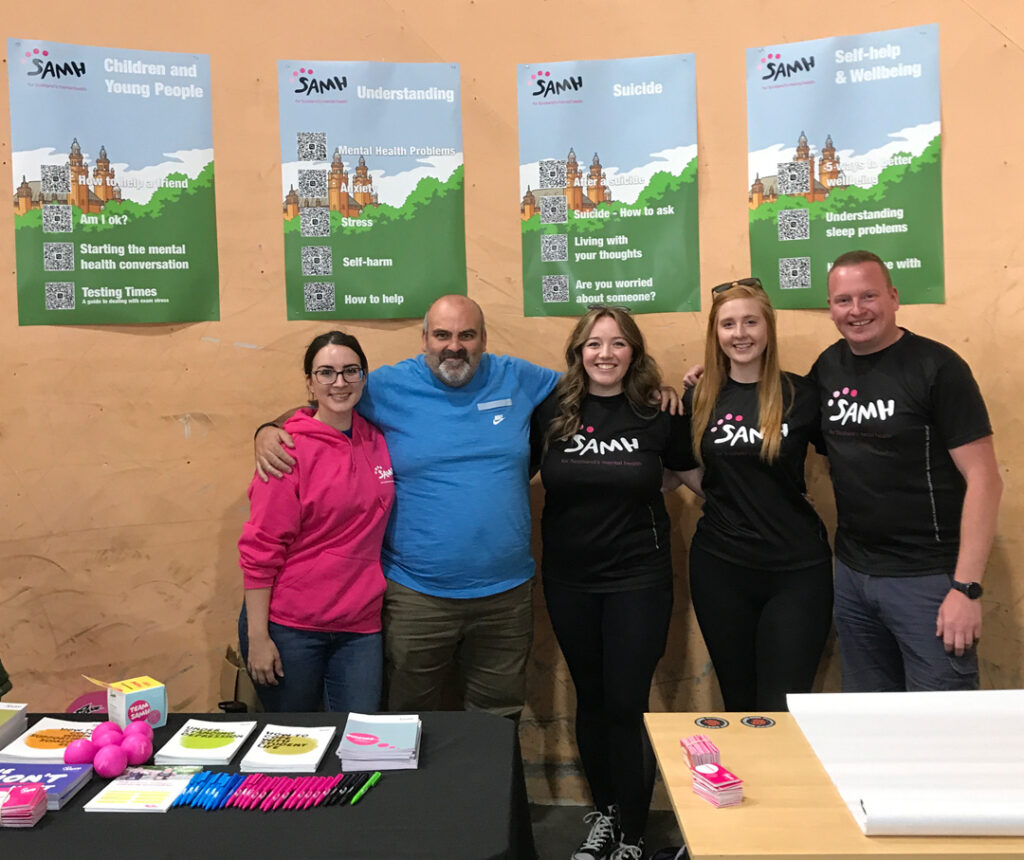
- The SAMH website contains a wealth of great information
- Starting the Mental Health conversation is a great place to begin
Why So Sad?
If you were there, I hope that the talk made it clear what this is. It is an ongoing campaign, centered around a fun, skate-themed pun-question. Its goal is to shine some light and find a way into what can seem a murky, cavernous, subject.
With that, I wrote three short essays earlier this summer that try to sum up what I’ve experienced in life so far and then learned over the last few years. They cover some of the points we discussed at the event:
Essay 1: The thing that hurts you so & Reframing the problem
Essay 2: What happened to me is not my fault
Essay 3: Encourage self-help & other support strategies
I hope they help.
Here are some of the topics covered:
The Adverse Childhood Experience Test
Here’s a good piece on the ACE scoring test by Harvard University.
The Number Story website is also a fantastic overview of ACEs.
The Neurosequential Model of Therapeutics
I often reference the order in which our brain processes information and the fact that our lower brain is constantly evaluating our situation and placing us into some level of alertness—ranging from calm through alert, alarmed, afraid, to terrified. All this happens very rapidly and, importantly, it happens before we have a chance to then think rationally, up in our “top-brain” (neocortex). When I reference this order of operations, I am drawing from Dr Bruce Perry’s “Neurosequential Therapeutic Model” (NMT)
The reason I find this work so useful is because it explains that our lower brain learns to make these rapid evaluations as it develops from all the way when we were still in utero through childhood then adolescence. The more traumatic, stressful, situations we encountered growing up, the more sensitized our automatic response system can become, and the more likely we are to experience heightened stress as adults.
The good thing is, once we understand the process it gives us some empowerment to learn to manage it. One of the most useful things I’ve learned is that managing major emotional responses is a physical process. Mental health and physical health are not separate. Our bodies and brains are one system.
The Center for Healing and Justice through Sport does great work leveraging the NMT
Learn about the sport-based application of the Neurosequential Model in Education
Push to Heal employs the NMT specifically using skateboarding as the therapeutic device
Here are three books I reference a lot that have helped me get a clearer view of what’s going on in this life with regards to our psychological wellbeing:
What Happened to You? By Dr Bruce Perry and Oprah Winfrey
The best book I’ve ever read on how our brains develop and function. Perry’s work builds on the findings of the Adverse Childhood Experience study, conducted between 1995-97 led by Drs Robert Anda and Vincent Felitti. Perry shows how novel and/or traumatic childhood experiences shape our brains’ automatic response to what life throws at us. He shows how our individual stress response is informed by the stressful and/or traumatic events we experienced as our brains were developing throughout childhood and adolescence. Basically, this work helps unlock how to understand why we feel the things we feel, why we think the things we think and how to manage it when things get all out of whack.
Essential reading in my opinion. It’s laid out as a conversation between Oprah and Dr Perry. Could be good as an audiobook if that’s more your style.
Lost Connections by Johann Hari
In a world we’ve developed way faster than we can possibly evolve to adapt to, Hari offers a wide-ranging exploration of the causes of depression—many of them societal and circumstantial. He describes, in easy-to-follow prose, some of the unexpected, and deceptively simple solutions.
Waking Up, Alive by Richard Heckler
Not for the faint of heart and maybe only for people who have suffered suicidal ideation or lost a loved one to suicide. Heckler’s compassion as a counselor comes through in this analysis of his many case studies of clients over his career who have attempted to end their lives but failed to die and then gone on to heal and find renewed hope for life.
Originally published in 1994, a year ahead of the start of the ACE study, Heckler shows that we are all unique, but we are not random. There are specific themes that show up time and again in cases of suicidal ideation and attempts: Traumatic loss; extreme family dysfunction; and a sense of alienation.
Hope and light prevail after a journey through dark, challenging, territory.
Mental Health First Aid
“Mental Health First Aid is a course that teaches you how to identify, understand and respond to signs of mental illnesses and substance use disorders. The training gives you the skills you need to reach out and provide initial help and support to someone who may be developing a mental health or substance use problem or experiencing a crisis.”— from MentalHealthFirstAid.org
What’s more, you’ll gain an understanding of how to support positive wellbeing and tackle stigma in the world around you.
Mental Health First Aid International
Mental Health First Aid Scotland Overview
Register for MHFA course in Scotland
Mental Health First Aid England also offer online versions:
- Mental Health in Adults: Course Options
- Mental Health in Youth: Course Options

